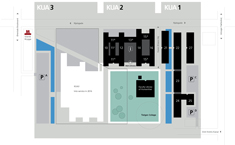BioHistory Seminar: "Socioeconomic dimensions of diet and health during the 20th century: A longitudinal study"
Presentation by Stefan Öberg, Department of Economic History, University of Gothenburg.
In Öberg's presentation he will present the research project “Socioeconomic dimensions of diet and health during the 20th century: A longitudinal study” (PI Christer Lundh, funded by the Swedish Research Council, 2016–2019, Dnr 2015-00961), its research design, as well as our initial results.
Inadequate diets and lifestyles pose major challenges to global public health, and are causing much of the burden of disease and premature death. Even if human living conditions have improved dramatically during the last century, under- and malnutrition still create huge health problems. Rapidly changing diets, with still inadequately known long-term consequences, also pose challenges to public health in both higher- and lower-income countries.
The interdisciplinary project (economic history, economics, nutritional science, medicine) aims at contributing to meet these challenges. The overarching research problem is socioeconomic variations in diet and health. The research task is to analyze the social patterns of the health-related behaviours, living conditions and diet and their consequences for later life health.
The project is creating an historical cohort with rich information on health-related behaviours, living conditions and diet at baseline and with a very long follow-up time. The information on socioeconomic background and consumption comes from household budget surveys carried out by the Swedish Social Board between 1913 and 1934 (N≈2,500). The project will link this household level data to information on longevity and cause of death (and height and weight for men) of the members of the households (N≈10,000).
The household data provides very rich information also on socioeconomic status. The possible social gradients in diet and health will be studied along the dimensions of earnings, human capital and urban-rural location, exploring the extent to which they were associated with differences in access to resources or differences in lifestyle/behaviour.
The project will also use the cohort to study to the long-term consequences for health from both the then still inadequate diets, for example micronutrient deficiencies, as well as from the then emerging “modern” diets, for example the then already high consumption of milk or sugar.

